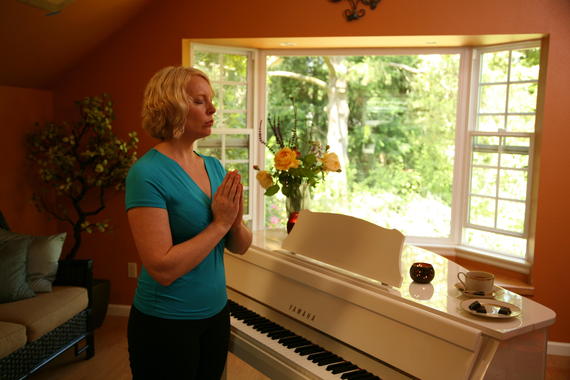
Some have described our current fast-paced, time-challenged era as a cult of speed and efficiency. Much has been written about the high levels of stress and anxiety caused by living under the strain of modern society. Was it different in eras gone by? Or is our experience today merely a variation on a centuries old theme?
Certainly Christopher Columbus was not the only explorer of his day who believed in the existence of a faster and easier route to the spices and riches found in the East. Even 100 years after Columbus' first voyage, many in Europe still saw the new world as a frustrating roadblock to the East. One could argue that, for better or worse, this drive to find a faster and more efficient way to do things and go places is ingrained in our Western psyche.
If the need for speed existed even in Columbus' time, has anything really changed? Perhaps on a purely economical level, no. But in our day-to-day human experience in the 21st century, undoubtedly yes. The difference we have with our ancestors is the chronic and sustained levels of stress we experience daily.
Fortunately, our bodies have a mechanism that protects us from external threats that require a fight or flight response. It's called the HPA axis, which stands for Hypothalamus-Pituitary-Adrenal Axis.
Dr. Bruce Lipton, in his book The Biology of Belief, writes:
The HPA system is a brilliant mechanism for handling acute stresses. However, this protection system was not designed to be continuously activated. In today's world, most of the stresses we are experiencing are not in the form of acute, concrete 'threats' that we can easily identify, respond to, and move on. We are constantly besieged by multitudes of unresolvable worries about our personal lives, our jobs, and our war-torn global community. Such worries do not threaten our immediate survival but they nevertheless can activate the HPA axis, resulting in chronically elevated stress hormones. p.151
In his book, Dr. Lipton uses a simple analogy to describe this situation of heightened and sustained stress. He suggests imagining we are all sprinters at the starting line of a race. We hear the words, "On your mark!" and then, "Get set!" but never the "go!" command. There's no release of the tension that sprinters experience once they begin to run. Simply put, staying in the "get set" mode for too long takes a horrible toll on our health.
Even when adults take on new hobbies in hopes of relaxing and de-stressing, such as learning the piano, they unfortunately still bring their "get set" mode to the process. In this mode, adult minds are spinning too fast with conflicting thoughts and anxieties which negatively affects their ability to learn a new skill -- much less enjoy the process.
As a teacher, it has always been hard to watch adult students struggle and suffer at the piano when all they really desire is a little musical solace. Searching for a remedy, I began to explore unique ways to practice the piano that are stress-free but still effective. After years of experimentation and observation, it became apparent that the solution was for students to practice very slowly and mindfully. However, convincing students to slow down when they are immersed in a culture of speed and efficiency is challenging.
Much like tai chi, practicing the piano mindfully is a fluid art form. You begin by softening the mind. When the mind softens, your mental and physical processing slows down while your awareness becomes significantly heightened. This is the key.
Once you soften the mind, your body and breathing will relax. When the body is relaxed, the touch of your finger tips on the piano keys softens too. You become more aware of the subtle sensations and sounds of every note. The idea is to enter into a state of mindfulness at the piano; a lucid state of awareness where every little thing about playing the piano becomes a beautiful mystery.
You don't have to limit this technique to developing new skills like playing the piano. For fun, take any mundane activity you normally do without much thought, such as putting away the dishes, grocery shopping or walking around the block. When you do these activities, really soften your mind during the process and just "observe" the experience from a new, slower perspective.
For the most part, we all move, talk, and think at a rather frantic speed - similar to a static filled frequency on the radio dial. If you can just slow down the frequency of the mind, you will no longer be a slave to the cult of speed and efficiency.
As an experiment, try saying the words "soft mind" slowly to yourself and imagine your mind transforming from a tight fist into an open palm. If you have trouble with that, try closing your eyes, taking in a deep breath and holding it for a count of eight while clenching your fists, face and other muscles. At the count of eight, exhale slowly and release the tension in your body. This reflects what it means to soften the mind.
By simply slowing and softening your mind, you change the way you perceive the world around you, whether playing the piano, walking through a garden or spending time with loved ones. Over time, this slower and more mindful approach to life will improve your emotional and mental well being and, as a result, your physical health.
More importantly, though, the softened mind can open a door to a higher level of consciousness where your great creative, divine nature resides -- a journey to an infinite world within that awaits us all.
